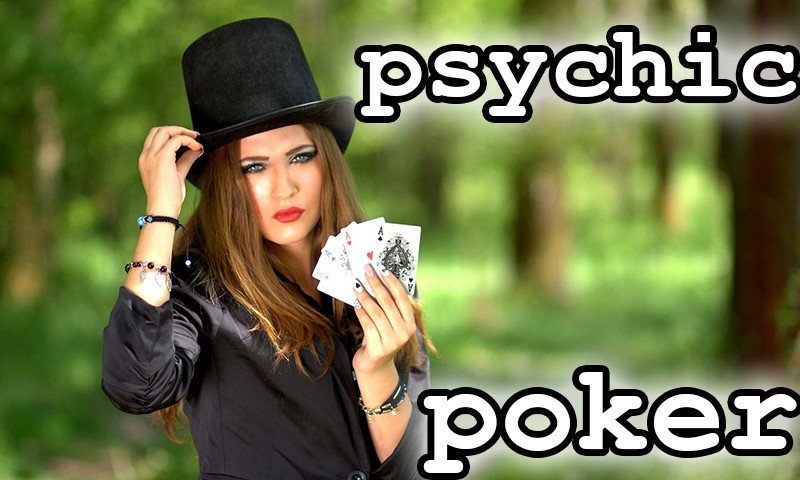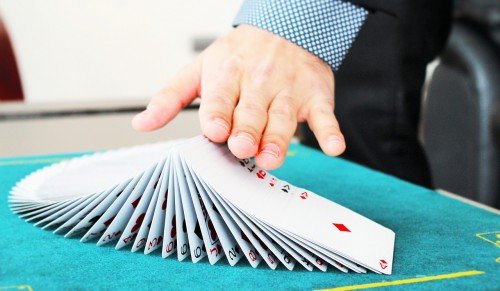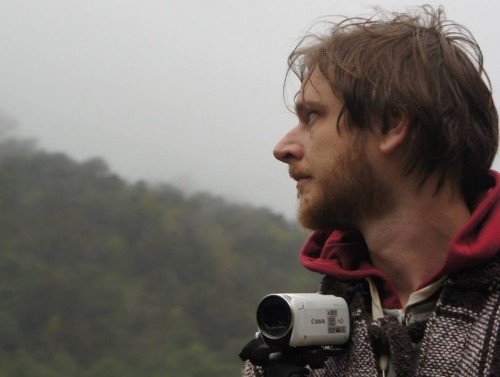
In my previous post, Psychic Poker - do cardplayers use ESP to gain an advantage? Part 1, I presented a case as to why the idea of psychic powers affecting a poker game may be worthy of our consideration. I had some great comments from @daut44, @sigmajin, @transhuman, and others, so I'm going to address them here. In later posts, I'll discuss some cases that have happened to me personally.
Response to comments and criticism
Cardplayers are in the business of deception
In the first post, Psychic Poker - do cardplayers use ESP to gain an advantage? Part 1
I quoted Doyle Brunson's Super/System, where Brunson wrote that there was a lot of evidence that ESP exists.
Professional poker player @daut44 responded:
I wouldn't take much stock into SuperSystem. For one, the book is nearly 40 years old, and was written when players were likely much more obvious about their holdings. Guessing exactly what predictable players have is common. Secondly, Doyle basically wrote the book to continue suckering people. For instance he had Bobby Baldwin write a chapter in the original and Lyle Berman write a chapter in the second edition. Both players are high stakes fish and lost money regularly to Doyle.
Daut makes a valid point. In my first post, I wrote that poker players are "in the business of deception" - so it makes sense that we should apply our skepticism consistently. When cardplayers say that ESP doesn't exist, we should be skeptical, and when they say it does, we should also be skeptical.
Why pretend that ESP exists?

To develop that point, @sigmajin wrote:
Doyle Brunson says some ridiculous bullshit that even he probably doesn't believe in order to maintain the "mystique" of the professional poker player ... a big part of their strategy was maintaining a certain image of part magician, part gunfighter, part math genius that caused people to be afraid to make moves on them
which explains the motivations a big player like Brunson would have in inventing stories about psychic powers.
The power of the subconscious mind
@transhuman writes:
I would not call it extrasensory, but rather how the unconscious (subconscious mind) processes information. When you are sitting around a poker table there is ample time to study other players and the situation to glean obscure, incidental information. After counting the cards and calculating the probabilities becomes second nature from constant practice, the mind has time to observe tells, interpret body language and draw conclusions. It's like machine learning or AI, except that the intelligence isn't a computer algorithm but a poker player's brain reckoning how to maximize winnings.
This is obviously an important point, and I'm sure that many of my own unusual experiences can be explained in this way. However, even as we explain the strange events in this fashion, it doesn't necessarily mean we can explain all of them in a similar way. Human beings have been wrong many, many times in history, and it's safe to assume that we're probably wrong about many things now. Time and research will tell if we are wrong about this.
Skepticism or dogmatism?
@daut44 also wrote:
I think the idea of this is nonsense. If someone is especially adept at reading people, for instance Antonio Esfandiari, it's because he understands human nature, has strong pattern recognition skills, and is good at reading physical tells, not ESP. This isn't even pseudoscience, it's pure fantasy.
@daut44 is an experienced professional poker player, and I do think he's in earnest, so when he says that psychic abilities don't exist, that deserves some weight. On the other hand, what he has written here could be interpreted as saying that the question doesn't even deserved to be asked, that we shouldn't look at evidence - that we shouldn't even consider the possibility that there might be something we don't understand.
This is what I meant to address when I wrote: "They think in terms of science and numbers, and so the things which aren't commonly discussed in science are also off-limits for them. Of course, it's rare that you can expose truth by ignoring something."
There is a taboo in scientific circles, where journals will refuse to publish experiments about anything related to parapsychology, and even for scientists to pretend that they've never had an unusual experience of that nature.
Biologist Rupert Sheldrake said in an interview:
"... take a taboo topic like telepathy. Most ordinary people think they've had telepathic experiences. Most people within science labs have also had them, 'cause they are ordinary people when they're not at work, and indeed when they are at work. But the culture of science labs is one that says, "this is a taboo topic, you're not meant to believe in it." So they don't feel free to talk about it when they're at work. They might talk about it after work, or after a glass a beer with friends or family, but not at work, and they may even pretend it doesn't exist at work. So that's the kind of thing, you know, a kind of secret life that's separated from a public appearance."
In other speeches, Sheldrake has noted how most ordinary people are interested in parapsychology - either believing that such phenomena are real, or that they aren't real, or just that it's interesting one way or another. However, the amount of research in scientific circles doesn't reflect that at all, with parapsychology studies remaining
A spirit of scientific inquiry

When Dr. Jacques Benveniste presented some results involving a very diluted substance causing an effect on a blood cell, scientists were quick to dismiss his findings. Nobel award winner Brian Josephson, said in response: "His findings provoked irrationally strong reactions from scientists, and I was struck by how badly he was treated." He stated that the scientists maintained the unscientific attitude of “even if it were true I wouldn’t believe it.” This is, unfortunately, an attitude which can affect even the most logical among us.
When presented with a new idea, especially one which may threaten our ego, or the worldview in which we invest our ego, if we are sincerely interested in the truth of the question, we must pause and reflect. Anger, blind fury and instant dismissal rarely lead us to greater understanding, for truth is such a subtle thing - like a cat in the woods at night, it treads delicately. If we close our ears, we will surely never hear its footsteps.
To be continued...
In the following posts, I'll talk about some of my own unusual experiences that happened at the card table. Some will probably be easily explained, whereas others might leave you wondering.
About me
My name is Kurt Robinson. I grew up in Australia, but now I live in Guadalajara, Jalisco. I write interesting things about voluntaryism, futurism, science fiction, travelling Latin America, and psychedelics. Remember to press follow so you can stay up to date with all the cool shit I post, and follow our podcast where we talk about crazy ideas for open-minded people, here: @paradise-paradox, and like us on Facebook here - The Paradise Paradox
Some other cool posts
Here are some other posts of mine to check out:
Peaceful political revolution - an interview with Anam Paiseanta (podcast/video)
Psychic Poker - do cardplayers use ESP to gain an advantage? Part 1

